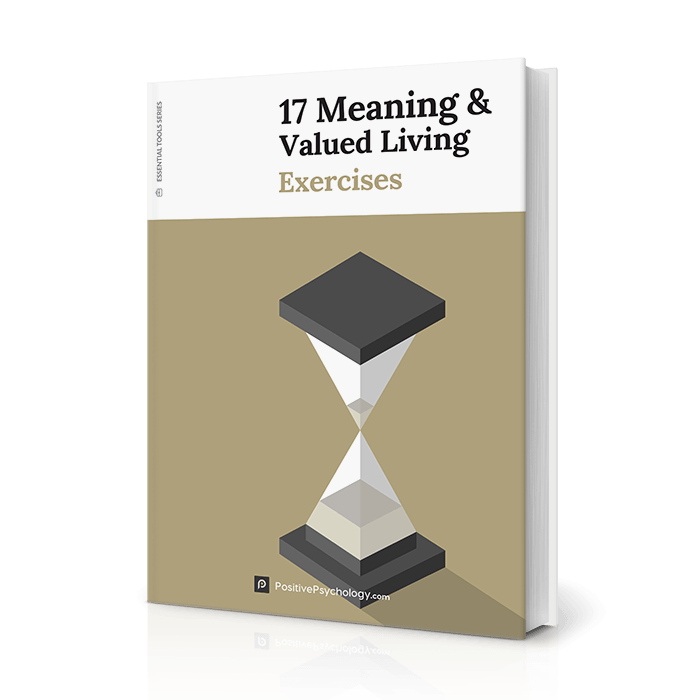5-2 Activity: Reflection: Self An essential part of developing...
5-2 Activity: Reflection: Self
An essential part of developing critical analysis skills is self-reflection. In this activity, you will have the opportunity to consider how using critical analysis influences your personal experience and your field of study or profession. Concluding this endeavor will result in a draft of the first part of the reflection section of your project. It also provides an opportunity to obtain valuable feedback from your instructor that you can incorporate into your project submission.
In this pursuit, you will define how using critical analysis tools influences your personal experience and your field of study or profession.
Purposely, it would be best to adopt the following title principles: MY Field of study or Profession is in OPERATIONS MANAGEMENT.
Describe how critically analyzing a technology's role in an event has informed your framework of perception.
Consider how it has altered the way you perceive the world.
Describe how examining your bias has altered how you use or do not use certain technologies.
Reflect on your own bias, then consider how an awareness of one's bias can change how one interacts with technology.
Explain how critically analyzing a technology's role in your event can influence your field of study or profession .
How can studying technology inform your understanding of the next big topic of study in your field or profession?

Answer & Explanation
Detailed answers show below
working on an assignment related to critical analysis. Here are some points that can help you with your assignment:
- Critical analysis is a process of examining information and ideas in a systematic way to make informed decisions.
- When critically analyzing a technology's role in an event, it can help you understand the impact of technology on the event and how it has influenced the outcome.
- It can also help you identify the strengths and weaknesses of the technology and how it can be improved.
- Examining your bias can help you understand how your personal beliefs and values influence your use or non-use of certain technologies.
- Reflecting on your own bias can help you become more aware of your own biases and how they affect your interactions with technology.
- Critically analyzing a technology's role in an event can influence your field of study or profession by providing insights into how technology can be used to improve processes and outcomes.
- Studying technology can inform your understanding of the next big topic of study in your field or profession by providing insights into emerging technologies and their potential impact.
Follow-up question
Could you explain more about the answer was shallow,
the outlook was not as positve
Finally, you need to explain how critically analyzing a technology's role in your event can influence your field of study or profession and how studying technology can inform your understanding of the next big topic of study in your field or profession.
It would be best if you started by defining how using critical analysis tools influences your personal experience and your field of study or profession. Then, you can describe how examining your bias has altered how you use or do not use certain technologies. Finally, you can explain how critically analyzing a technology's role in your event can influence your field of study or profession and how studying technology can inform your understanding of the next big topic of study in your field or profession.
Related Q&A
- Q "Do the best you can until you know better. Then when you know better, do better." ~ Maya Angelou In our labs this week ... Answered over 90d ago
- Q The Marijuana Tax Stamp Act of 1937 federally criminalized marijuana on the basis of: Group of answer choices dire... Answered over 90d ago
- Q Develop an original, scholarly paper addressing a topic relevant to the course-( The Impact of Mindfulness-Based Interve... Answered over 90d ago
- Q For Part 2 - you will be provided two companies: choose one as the focus for your response. You will also be required... Answered over 90d ago
- Q . CO Management Scenarios 3. A producer notices some of his/her animals have not been as active as they typically are, ... Answered over 90d ago
- Q Let h(x)= cos(TX). Find all extreme values (if any) of h on the given interval. Determine at which numbers in the interv... Answered over 90d ago
- Q . Burgess Business School has two degree programs, BBA and MBA. The school uses an ABC system to cost the three support... Answered over 90d ago
- Q Topic: Writing the Research Paper a. Explain the process of research design b. What are the benefits of a research desig... Answered over 90d ago
- Q Three progressive approaches to Early Childhood education originating in Europe have been practiced for almost a century... Answered 74d ago
- Q Wood Synergy Inc. had become a mid-sized player in the fine woods supplier industry. The firm purchased stock woods from... Answered over 90d ago
- Q Answer the following interpretation questions about the geologic features you observed at Ashfall Fossil Beds. 1) What ... Answered over 90d ago
- Q Part c: Is it possible for the company to make a profit of 2,500?. For a certain company, the cost for producing 3 items... Answered over 90d ago
- Q What two strategies could be used across disciplines and would be appropriate for remediating reading and writing skills... Answered over 90d ago
- Q Explain some of the barriers to patient education of the elderly and discuss their special needs. List ways to best appr... Answered over 90d ago
- Q recommendation for Prinze Corner Restaurant strategy for the growth of their business. https://www.google.com/search?q... Answered over 90d ago
- Q Name two brands that you consider to hold a positive image. Using Figure 2.1 of your textbook, identify one tangible and... Answered over 90d ago
13 Self Reflection Worksheets & Templates to Use in Therapy

While valuable for clients and students, it is equally vital for therapists, coaches, and mental health professionals.
Literature across multiple disciplines confirms that reflection serves therapists by improving “learning and performance in essential competencies” (Aronson, 2011, p. 200). In therapy, it helps the client “manage personal feelings, such as anxiety and inadequacy, and their impact on others” (Fisher, Chew, & Leow, 2015, p. 736).
This article introduces the basics behind reflection along with questions and worksheets that encourage and support the reflective process and maximize the benefits for therapists, clients, and students.
Before you continue, you might like to download our three Meaning and Valued Living Exercises for free . These creative, science-based exercises will help you learn more about your values, motivations, and goals and will give you the tools to inspire a sense of meaning in the lives of your clients, students, or employees.
This Article Contains:
Fostering reflection skills: the basics, 50+ questions to ask your clients or students, 5 helpful reflection worksheets & tools, journaling & diaries: 2 useful templates, top 3 activities for practicing reflection, 3 fun games to inspire clients, positivepsychology.com’s reflection resources, a take-home message.
While reflection has no single, universal definition, Aronson (2011, p. 200) frames it as the “process of analyzing, questioning, and reframing an experience in order to make an assessment of it for the purposes of learning (reflective learning) and/or improve practice (reflective practice).” It has multiple uses in various contexts.
Reflection is central to most therapies. Indeed, Socratic questioning (using open yet focused questions) is widely used in Cognitive-Behavioral Therapy (CBT) to encourage reflection and unpack deeply held beliefs (Bennett-Levy, Thwaites, Chaddock, & Davis, 2009).
Within therapy , Bennett-Levy et al. (2009) recognized that reflection can be beneficial for both the therapist and the client, and can be considered from several perspectives.
- Reflective practices Reflection as part of the clinical experience, using journals, video, and group activities.
- Reflective skills The ability to reflect on oneself through therapeutic interaction and self-awareness of feelings and thoughts.
- Reflective systems Reflection results from the interaction of several processes, including the individual’s memory, skills, and reflective system.
- Reflective processes Reflection involves the ability to observe (possibly via visualization) and then reflect or conceptualize to engage in further processing, including elaboration, problem solving, and self-questioning.
Bennett-Levy et al. (2009, p. 121) offer the following helpful definition of reflection:
“Reflection is the process of intentionally focusing one’s attention on a particular content; observing and clarifying this focus; and using other knowledge and cognitive processes (such as self-questioning, logical analysis and problem-solving) to make meaningful links.”
The benefits of reflection carry across to the learning process found within educational environments. It forms the second of the following four-stage model used by coaches engaging with students to understand the learning process (Adams, 2016):
- Attending to and focusing on the relevant features of their experience
- Actively reflecting on their experience
- Extracting learning from that experience
- Planning how to create new ways of behaving in response to the learning
Reflection and learning are also highly applicable outside of school.
While reflection is vital to self-awareness and healing for clients, it is also a powerful and insightful tool for therapists.
Mental health professionals must be self-aware and cognizant of the skills they are using, because “in no other profession does the personality and behavior of the professional make such difference as it does in counseling” (Meier & Davis, 1997).
The following questions can be helpful for new and existing counselors and their clients to increase self-awareness and knowledge of counseling techniques (modified from Bennett-Levy et al., 2009):
- Observe the experience (such as the session or intervention). How did I feel? What did I notice?
- Clarify the experience. What did I learn? Was it helpful? What did not change?
The following two points are more applicable for therapists:
- Implications of the experience for clinical practice What are the implications for and impacts on one-to-one therapy, supervision, consultation, etc.?
- Implications of the experience for how I see myself as a therapist What are the implications of this experience for my understanding of cognitive therapy and theory?
Considering each question in turn can provide insights that encourage greater knowledge of the therapeutic process and promote lessons to take forward to future sessions.

Asking appropriate questions is a crucial aspect of reflection and central to deeper, long-lasting learning (Aronson, 2011; Adams, 2016).
Reflection questions for students
The following three sets of questions promote reflection in students by considering academic performance (modified from ones used by the Colorado Department of Education ):
Reflective Questions for personal academic performance
These Reflective Questions prompt the student to think about what they are learning, why they are learning, and how they can improve the overall process.
The student answers the first question regarding what they have been learning and then selects a sample of other questions to prompt reflection.
They then complete the last column with their thoughts for later review by themselves or a therapist, coach, or counselor.
A sample of the questions includes:
What have you been learning about (today, this week, or this semester)? Why do you think these objectives and this subject are important? Did you give your best effort on your most recent assignment?
Reflective Metacognition Questions for students
Reflective Metacognition Questions help students reflect on how and what they think .
The questions are grouped under the following subsections and can be answered individually, in pairs, or as a group exercise, with a summary of the answers placed in the final column.
- Reflection and collaboration
- Self-reflection
Example questions include:
What are your thoughts about what was said? Are there any other similar answers or alternative answers? Why do you think this answer is true?
Reflection Questions in Therapy
Reflection is an essential part of therapy.
Using the Reflective Questions in Therapy worksheet, the therapist can encourage and facilitate the process of reflection in the client, such as (Bennett-Levy et al., 2009):
What do I wish people better understood about me? What behaviors and beliefs do I want to let go of? Have I been receiving enough support this year?

Download 3 Meaning & Valued Living Exercises (PDF)
These detailed, science-based exercises will equip you or your clients with tools to find meaning in life help and pursue directions that are in alignment with values.
Download 3 Free Meaning Tools Pack (PDF)
By filling out your name and email address below.
During CBT and other therapies, the client is often given a workbook or journal to capture reflections on the practice or skills they develop as they progress through treatment.
Reflection reinforces learning within the sessions and, more importantly, leads to deeper insights between sessions (Bennett-Levy et al., 2009).
Learning From My Past
The Reflections on Learning From My Past worksheet helps the client capture and reflect on an event from their past and consider how different behavior may have led to an alternate outcome.
The client is asked a series of questions about the incident, such as:
What happened or what was the event? How did it make you feel? How did you handle it?
Self-Reflection Behavior Review
At the end of the year or looking back on the client’s life, it can help to look for patterns in behavior.
The Self-Reflection Behavior Review worksheet is a valuable way to summarize events and see the recurring traps into which the client falls.
The summary provides a valuable talking point during therapy sessions and can be referred to later in order to assess how behavior has changed and improved.
It asks the client to consider:
Do you see a pattern in your behavior? How could you act differently in the future? What situations should you try to avoid?
Who Am I Self-Reflection
In life, we are often so busy with everyday tasks that we forget to take stock of who we are, what we are good at, and what is important to us.
Clients or students can use the Who Am I Self-Reflection worksheet to think about what they are good at, what significant challenges they have been confronted with, and what inspires them.
Some questions to consider include:
Think of something significant that went wrong. What did I learn from it? What am I passionate about? What do I love most about myself?
Student Work Reflection
Students can help their existing and future learning by thinking about how they are approaching their work and using metacognitive skills to drive future improvements (Adams, 2016).
The Student Work Reflection is a set of simple repeating questions to consider how they approach each task in school.
It asks the student to consider:
How could I improve? What am I still working on? What am I most proud of?
Reflection on Group Activities
Reflection is equally important in group tasks as in individual tasks. The Reflection on Group Activities is for an educational or therapy setting to assess the success and learnings from a group activity.
Working individually or in groups, students can answer questions such as:
What went well? What did not go well? What could we try next time?

As an intervention, it is a creative way to engage clients in a therapeutic activity, increasing self-awareness and personal growth.
It can be helpful to capture some of the key events of the day. The act of writing what happened and reviewing it later can be insightful and help you recognize positive and negative patterns in your behavior.
Daily Reflection of Feelings
Use the Daily Reflection of Feelings journal with the client to record how their day went and capture the feelings they experienced.
Questions include:
What was the best part of the day? What would you change about the day if you could? What are you looking forward to tomorrow?
Daily Reflection of Behavior
Clients and therapists can benefit from reviewing significant events that occurred between sessions.
Use the Daily Reflection of Behavior journal with clients to capture daily behaviors that were unexpected or parts of habits that the client wishes to change.
What happened? How did I behave? Why did it happen?
How to start a creative journal – Johanna Clough
Several techniques can encourage the process of reflection in clients and students.
- DARN The DARN acronym forms an important aspect of motivational interviewing . With the use of evocative change questions, the client is invited to engage in reflection to consider the change, including:
Desire questions – What I would like, wish, or want to do? Ability questions – Capturing the idea that change is possible. Reasons questions – Recognizing the reasons for change. Need questions – Identifying the urgency of the change.
- OARS OARS is another acronym important to the process of motivational interviewing to elicit change talk through the use of the following:
Open questions encourage the client to talk. Affirmations include statements of understanding and offers of support. Reflections capture and rephrase what the client has said Summarizing provides a check-in with the client by summarizing what has been said.
OARS encourages reflection in both the therapist and the client.
- Socratic questioning Observing and taking part in Socratic questioning can be a valuable opportunity to learn about the process of encouraging reflection in others and in oneself.
Consider the five questions:
What happened? When did it happen? Where did it happen? Why did it happen? How did it happen?

Try out the following three activities with clients or students.
Your life as a play
You can carry out this reflective exercise in small groups of three or four people.
Ask each person to describe their ideal life in three acts, as though it were a play.
What past dreams were achieved? What is the present (good and bad)? What is your ideal future?
Share with the group, discussing each of the acts, adding humorous insights along the way. End with your positive view of how the future might look.
Shield of honor
This activity is ideal for reflection in multiple small groups.
Ask each group to create a shield out of a large piece of paper.
Divide the paper into four equal rectangles, representing:
- Skills and abilities they offer
- Skills and abilities they need to improve
- Frustrations
- What they are proud of
Tell the group they are only allowed to use drawings and pictures – no words.
After 20 minutes, ask each group to share what they have created.
Reflection on communication
Individuals are grouped into pairs and asked to sit back-to-back.
One person is given either a pen and paper or building blocks and asked to create a novel design.
Ask them to describe what it looks like, while the other person attempts to recreate the design on their side.
Once finished, the two can compare what they have created and discuss the communication process.


17 Tools To Encourage Meaningful, Value-Aligned Living
This 17 Meaning & Valued Living Exercises [PDF] pack contains our best exercises for helping others discover their purpose and live more fulfilling, value-aligned lives.
Created by Experts. 100% Science-based.
Throughout this post, we’ve discussed the importance of clarifying wants, behavior patterns, and forces of motivation to better understand what brings meaning throughout one’s life. To this end, we invite you to check out our free Meaning & Valued Living Exercises Pack .
This pack features three of our top tools from the Positive Psychology Toolkit©, all of which center on the theme of values-based living:
- The Top 5 Values This exercise draws on key principles of Acceptance and Commitment Therapy to help clients begin brainstorming their values. Following this, clients will then prioritize these values in a list to identify those most central to who they are.
- Self-Eulogy This exercise invites clients to consider how they’d like to be remembered at their funeral as a means to identify and clarify values. Based on this, they can then consider how well they are living in alignment with these values.
- The Scoreboard Metaphor This exercise helps clients recognize how to enact their values through goal-setting. In particular, it draws on the metaphor of a basketball game to illustrate how living into one’s values is an ongoing process and that the paths by which we pursue our goals are opportunities to enact our values in daily life.
You can access all three exercises for free by downloading our Meaning & Valued Living Exercises Pack .
Additionally, if you’re looking for further reading on the topic of self-reflection, be sure to check out our blog post featuring ten book recommendations .
If you’re looking for more science-based ways to help others discover meaning, this collection contains 17 validated meaning tools for practitioners. Use them to help others choose directions for their lives in alignment with what is truly important to them.
Reflection engages clients and students in the process of analyzing, questioning, and reframing an experience. It encourages individuals or groups to learn and improve, and promotes deeper, longer lasting learning (Aronson, 2011).
Within therapy and coaching, reflection can help individuals manage their feelings (such as anxiety or self-doubt) and recognize how their behavior affects others (Fisher et al., 2015).
In an educational setting, research shows that questions and exercises prompt learners to improve core competencies (Aronson, 2011).
In any environment, reflection involves metacognition. Individuals must step outside of their existing cognition to think about their thinking . It is a skill that is best learned through practice.
Therapists, coaches, counselors, and teachers can help by prompting the client or class to consider what they have learned, what has gone well (and hasn’t), and what they could have done differently.
The takeaways from reflection can change a person’s view of what has already happened and influence how they behave in the future.
The exercises and questions within this article will engage others, promoting the reflective process and offering deeper understanding and tools for future learning.
We hope you enjoyed reading this article. Don’t forget to download our three Meaning and Valued Living Exercises for free .
- Adams, M. (2016). Coaching psychology in schools: Enhancing performance, development and wellbeing . Routledge.
- Aronson, L. (2011). Twelve tips for teaching reflection at all levels of medical education. Medical Teacher , 33 (3), 200–205.
- Bennett-Levy, J., Thwaites, R., Chaddock, A., & Davis, M. (2009). Reflective practice in cognitive behavioural therapy: The engine of lifelong learning. In J. Stedmon & R. Dallos (Eds.), Reflective practice in psychotherapy and counselling (pp. 115–35). Open University Press.
- Fisher, P., Chew, K., & Leow, Y. J. (2015). Clinical psychologists’ use of reflection and reflective practice within clinical work. Reflective Practice , 16 (6), 731–743.
- Hayman, B., Wilkes, L., & Jackson, D. (2012). Journaling: Identification of challenges and reflection on strategies. Nurse Researcher , 19 (3), 27–31.
- Meier, S., & Davis, S. (1997). The Elements of Counselling . Brooks/Cole.
Share this article:
Article feedback
What our readers think.
Thank you for this amazing article. Very useful and informative. Heartfelt gratitude for sharing such wonderful information. Your touching and empowering many lives silently. Thank you
Let us know your thoughts Cancel reply
Your email address will not be published.
Save my name, email, and website in this browser for the next time I comment.
Related articles

Reparenting: Seeking Healing for Your Inner Child
In our work as therapists, we often encounter the undeniable truth: we never truly outgrow our inner child. A youthful part within us persists, sometimes [...]

30 Best Self-Exploration Questions, Journal Prompts, & Tools
Life is constantly in flux – our environment and ‘self’ change continually. Self-exploration helps us make sense of who we are, where we are, and [...]

Inner Child Healing: 35 Practical Tools for Growing Beyond Your Past
Many clients enter therapy because they have relationship patterns that they are tired of repeating (Jackman, 2020). They may arrive at the first session asking, [...]
Read other articles by their category
- Body & Brain (49)
- Coaching & Application (57)
- Compassion (26)
- Counseling (51)
- Emotional Intelligence (24)
- Gratitude (18)
- Grief & Bereavement (21)
- Happiness & SWB (40)
- Meaning & Values (26)
- Meditation (20)
- Mindfulness (45)
- Motivation & Goals (45)
- Optimism & Mindset (34)
- Positive CBT (28)
- Positive Communication (20)
- Positive Education (47)
- Positive Emotions (32)
- Positive Leadership (18)
- Positive Parenting (4)
- Positive Psychology (33)
- Positive Workplace (37)
- Productivity (16)
- Relationships (46)
- Resilience & Coping (36)
- Self Awareness (21)
- Self Esteem (38)
- Strengths & Virtues (32)
- Stress & Burnout Prevention (34)
- Theory & Books (46)
- Therapy Exercises (37)
- Types of Therapy (64)
5-2 Activity Reflection Self
- School Southern New Hampshire University - Manchester, NH
- Course Title IDS 402 - Wellness
- Uploaded By Chang608
Is there anything else you׳d like to ask? Our top-rated tutors can help you.
Students also viewed
- Applied Sciences
- Architecture and Design
- Business & Finance
- Computer Science
- Engineering
- Environmental science
- Human Resource Management
- Information Systems
- Mathematics
- Political Science
- Social Science
- Liberty University
- New Hampshire University
- Strayer University
- University Of Phoenix
- Walden University
- Homework Answers

5-2 Activity: Refection: Self
by ella | Feb 2, 2024 | Uncategorized
An essential part of developing critical analysis skills is self-reflection. In this activity, you will have the opportunity to consider how critically analyzing your topic in globalization has affected your life and how you view the world around you. This activity is your time to think about your personal experiences and your beliefs, assumptions, and values. Completing this activity will result in a draft of the reflection section of your project. It also provides an opportunity to obtain valuable feedback from your instructor that you can incorporate into your project submission.
In this activity, you will first describe how critical analysis skills have affected your framework of perception. Next, you will describe how examining your bias has influenced how you perceive the world. Finally, you will explain how critical analysis skills can impact your academic or professional lives.
You are not required to answer each question below the rubric criteria, but you may use them to better understand the criteria and guide your thinking.
Specifically, you must address the following rubric criteria:
- Consider how it has altered the way you perceive the community around you and/or the world.
- Reflect on your own bias and then consider how an awareness of one’s bias can change our perceptions.
- Consider how studying globalization might inform your understanding of the next big topic of study in your field or profession.
What to Submit
Submit your short paper as a 1- to 2-page Microsoft Word document with double spacing, 12-point Times New Roman font, and one-inch margins. Sources should be cited according to APA style. Consult the Shapiro Library APA Style Guide for more information on citations.
My Degree is in Business Management and my Profession is Finance Director for Security Firm
Order a similar assignment, and have writers from our team of experts write it for you, guaranteeing you an A


5-2 Activity: Reflection: Self

Having Trouble Meeting Your Deadline?
Get your assignment on 5-2 Activity: Reflection: Self completed on time. avoid delay and – ORDER NOW
An essential part of developing critical analysis skills is self-reflection. In this activity, you will have the opportunity to consider how critically analyzing your example within an area of popular culture has affected your life and how you view the world around you. This activity is your time to think about your personal experiences, beliefs, assumptions, and values. Completing this activity will result in a draft of the reflection section of your project. It also provides an opportunity to obtain valuable feedback from your instructor that you can incorporate into your project submission.
In this activity, you will first describe how critical analysis skills have affected your framework of perception. Next, you will describe how examining your bias might change how you interact with popular culture. Finally, you will explain how critical analysis skills can impact your academic or professional lives.
You are not required to address each item below the rubric criteria, but you may use them to better understand the criteria and guide your thinking.
Specifically, you must address the following rubric criteria:
- Consider how it has altered the way you perceive the community around you and/or the world.
- Reflect on your own bias and then consider how an awareness of one’s bias can change how you interact with popular culture.
- Consider how studying popular culture might inform your understanding of the next big topic of study in your field of study or profession.
What to Submit
Submit your short paper as a 1- to 2-page Microsoft Word document with double spacing, 12-point Times New Roman font, and one-inch margins. Sources should be cited according to APA style. Consult the Shapiro Library APA Style Guide for more information on citations.
Our website has a team of professional writers who can help you write any of your homework. They will write your papers from scratch. We also have a team of editors just to make sure all papers are of HIGH QUALITY & PLAGIARISM FREE. To make an Order you only need to click Order Now and we will direct you to our Order Page at Litessays. Then fill Our Order Form with all your assignment instructions. Select your deadline and pay for your paper. You will get it few hours before your set deadline.
Fill in all the assignment paper details that are required in the order form with the standard information being the page count, deadline, academic level and type of paper. It is advisable to have this information at hand so that you can quickly fill in the necessary information needed in the form for the essay writer to be immediately assigned to your writing project. Make payment for the custom essay order to enable us to assign a suitable writer to your order. Payments are made through Paypal on a secured billing page. Finally, sit back and relax.
Do you need an answer to this or any other questions?
Order Plagiarism Free Answer Here
Similar Posts
Term 6 week 5 discussions.
Week 5 Discussion Forum (MKT6250 Healthcare Marketing) Discuss vertical marketing systems and their application in health care. What is Integrated…
Inventory Management
Week 9 Assignment – Inventory Management Instructions Research two manufacturing or two service companies that manage inventory and write a…
Frequency Methodology- Problem
Upload the Excel data file Career in SPSS and save it in SPSS data format for future use. The data…
Accounting Qestion
Zambrano Wholesale Corporation maintains its records on a cash basis. At the end of each year the company’s accountant obtains the…
Module 7 Discussion Question
Obtain the latest two Ford and General Motors Annual Reports online, like you have been doing for other companies in…
Dean Invested $1100 Into A Bond. When The Bond’s Maturity Date Was Reached Five Years Latter, Dean Had A Total…
Dean invested $1100 into a bond. When the bond’s maturity date was reached five years latter, Dean had a total of…

IMAGES
VIDEO
COMMENTS
Module Five Assignment. Josh Grimes Southern New Hampshire University IDS 402: Wellness Rebecca Andrews November 24, 2022. 2. Module Five Assignment. Perception Self-Reflection. One of the hardest things for most people to do. Over the past 5 weeks I have been able to analyze a subject that has been very important to me over the last 10 or so ...
View 5-2 activity reflection.docx from NURSING BS IDS-400-X5 at Southern New Hampshire University. 5-2 Activity: Reflection: Self Joshua Wilson Southern New Hampshire University Critically analyzing. AI Homework Help. Expert Help ... Reflective Journal Assignment Guide-Week5 (1).docx. Page 14 53 Two mutations that affect plaque morphology in a ...
5-2 Activity Reflection: Self 3 Studying wellness can help influence my field of study because I hope to obtain in upper management within my current company. Learning more about biases has taught me that once in that position, I must be able to base my hiring decision on whether the person is a qualified candidate and not my own opinion. Working with the public, you really need to know about ...
View 5-2 Activity Self Reflection.docx from IDS 403 at Southern New Hampshire University. 5-2 Activity: Reflection: Self Taking the time to critically analyze a technology's role in an event has ... 4.1 Assignment The Greatest of These is Love.docx. 280 CTA 1.pdf. MANT 222 Week 4 Lecture 8.ppt. AACS1443 Tutorial 2 202401.docx. assessment.
Computer-science document from Southern New Hampshire University, 4 pages, 5-2 Activity Assignment Ladasha Noel IDS-400 Diversity Professor Mack February 5, 2023 Reflection: Self 1. Describe how critically analyzing your topic has positively informed your personal experience. Because I am aware that diversity in the workplace c
Perception Self-reflection can be challenging for most people. However, over the past five weeks, I have been able to analyze a subject that has been very important to me for the last decade or so - PTSD. I have had the opportunity to study and research this subject, which has taught me many things I did not previously know. I was not aware of the number of people affected by PTSD, the ...
5-2 Activity: Reflection: Self. ... working on an assignment related to critical analysis. Here are some points that can help you with your assignment: Critical analysis is a process of examining information and ideas in a systematic way to make informed decisions.
View 5-2 Activity Reflection Self.docx from IDS 402 at Southern New Hampshire University. Running head: PHYSICAL ACTIVITY 1 5-2 Activity: Reflection: Self Renae Davis-Plummer Southern New Hampshire ... However, prior to this assignment, I had some knowledge of why it is important to be active, but I never knew how it all began and where it all ...
Information-systems document from Southern New Hampshire University, 4 pages, 5-2 Activity: Reflection: Self IDS-400 Diversity SNHU June 3, 2023 Critically analyzing my topic has made me think more of moving on from my current employment situation Personal Experience Critically analyzing my topic has made me think more of how to b
Fostering Reflection Skills: The Basics. While reflection has no single, universal definition, Aronson (2011, p. 200) frames it as the "process of analyzing, questioning, and reframing an experience in order to make an assessment of it for the purposes of learning (reflective learning) and/or improve practice (reflective practice)." It has multiple uses in various contexts.
5-2 Activity Reflection Self. School Southern New Hampshire University - Manchester, NH; Course Title IDS 402 - Wellness; Uploaded By Chang608; ... Week 2 Discussion Post 5 Document. 1 pages. Week 2 Discussion Post 23 Document. 1 pages. Week 4 Discussion Post 3 Document. 1 pages. Week 2 Discussion Post 10 Document.
Overview An essential part of developing critical analysis skills is self-reflection. In this activity, you will have the opportunity to consider how critically analyzing your topic in globalization has affected your life and how you view the world around you. This activity is your time to think about your personal experiences and your beliefs, assumptions,
View 5-2 Activity- Reflection- Self.docx from HEALTH 402 at University of Hawaii. 1 5-2 Activity: Reflection: Self 5-2 Activity: Reflection: Self Sienna Joseph Southern New Hampshire University Dr. ... TMF3113 S12023 M2 Assignment_Group1_TMITHALK.docx. assignment. It is logical to conclude from the literature review that the reasons behind ...
5-2 Activity: Reflection: Self of the world we live in. Diversity is an essential part of human experience, and the combination of varied backgrounds, cultures, and experiences can open our minds to perspectives that we may have never encountered. People's unique perspectives can help to come up with out of the box solutions and approaches that would not have been thought of otherwise.
View 5-2 activity.docx from IDS 400 at Southern New Hampshire University. 5-2 Activity: Reflection: Self Hernan Teran Southern New Hampshire University IDS 400: Diversity Professor Paul Anderson June ... The purpose of this assignment is to simulate the thought process managers use to connect unit goals with organizational strate. Q&A.
This activity is your time to think about your personal Overview An essential part of developing critical analysis skills is self-reflection. In this activity, you will have the opportunity to consider how critically analyzing your example within an area of popular culture has affected your life and how you view the world around you.
IDS 400 5-2 Activity: Reflection: Self Jonathan Hagger Southern New Hampshire IDS 400: Diversity Professor Williams 1. ... CODING ASSIGNMENT 2.pdf. FutureDeferred Income Tax RSM 320 Intermediate Financial Accounting II Fall 2018. document. 88BA4B90-1B93-4537-BC7E-7BC9A85375B5.jpeg.